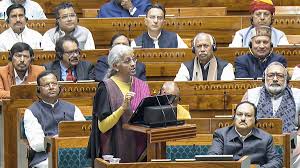India, the world’s largest exporter of the grain, tried to increase supplies and stabilise local prices on Thursday after planting was hampered by below-average monsoon rainfall by banning the sale of broken rice and imposing a 20% levy on exports of various grades of the grain. The export of rice by India to more than 150 nations put upward pressure on food prices, which are already rising as a result of the drought, heat waves, and Russia’s invasion of Ukraine.
The new tax will probably deter customers from buying from India and lead them to rivals like Thailand and Vietnam instead, which have been battling to boost shipments and raise costs. Basmati and parboiled rice are exempt from the export tariff, which will take effect on September 9. Additionally, New Delhi banned the export of 100% broken rice, which a few underdeveloped African nations purchase for human consumption despite the fact that it is primarily used for animal feed.
According to Krishna Rao, B.V. President of the All India Rice Exporters Association, white and brown rice, which make up more than 60% of India’s exports, will be impacted by the tariff. Buyers will go to Thailand and Vietnam because Indian rice shipments will no longer be competitive in the global market, according to Rao. India competes with Thailand, Vietnam, Pakistan, and Myanmar in the world market and ships more than 40% of the world’s rice.
Concerns have been raised about India’s rice output due to below-average rainfall in important rice-producing regions including West Bengal, Bihar, and Uttar Pradesh. This year, the nation has already curtailed sugar shipments and outlawed the export of wheat.
Exporters request some respite from the government for contracts that have already been signed and vessels that are loading at the ports. The restriction on broken rice shipments may have a negative impact on China’s purchases for feed. With sales of 1.1 million tonnes in 2021, China was the largest consumer of broken rice, while Senegal and Djibouti, two African nations, purchased broken rice for domestic consumption.











